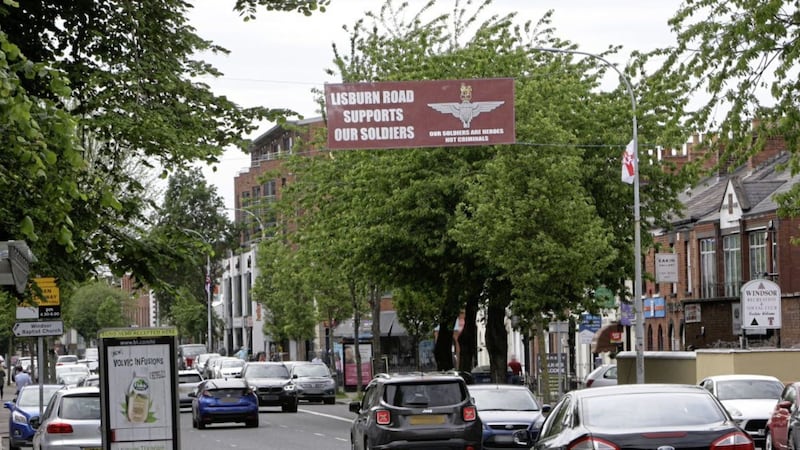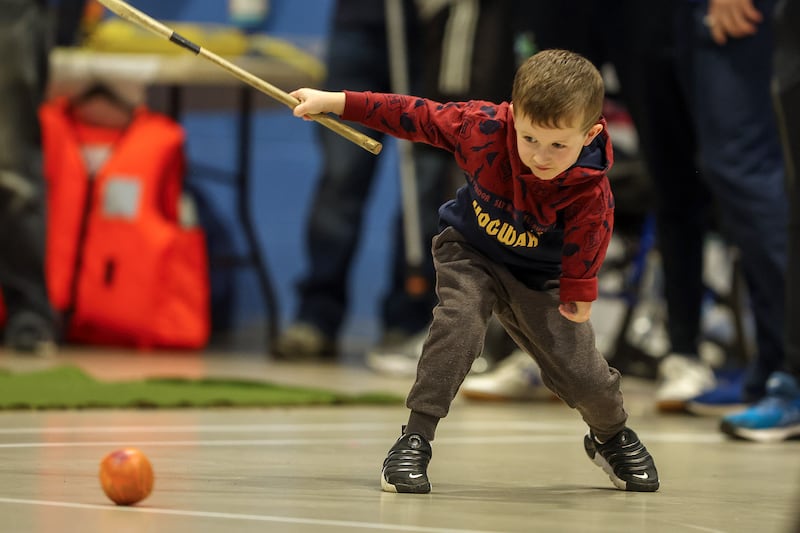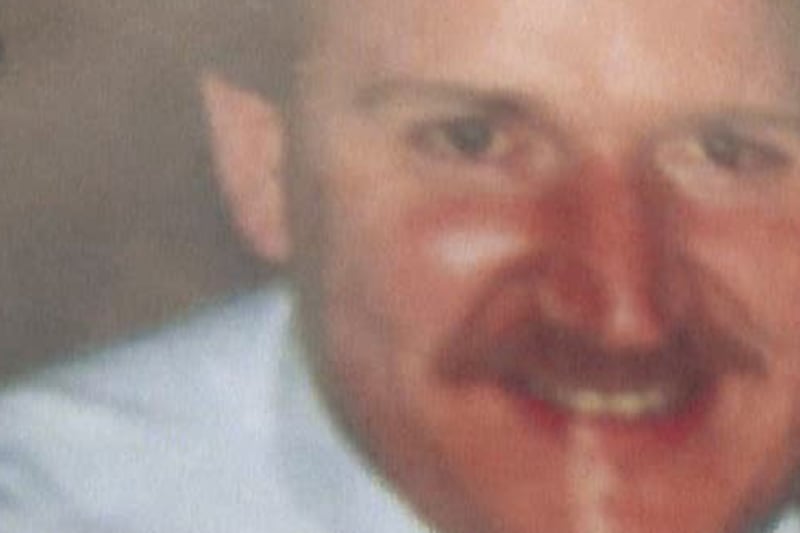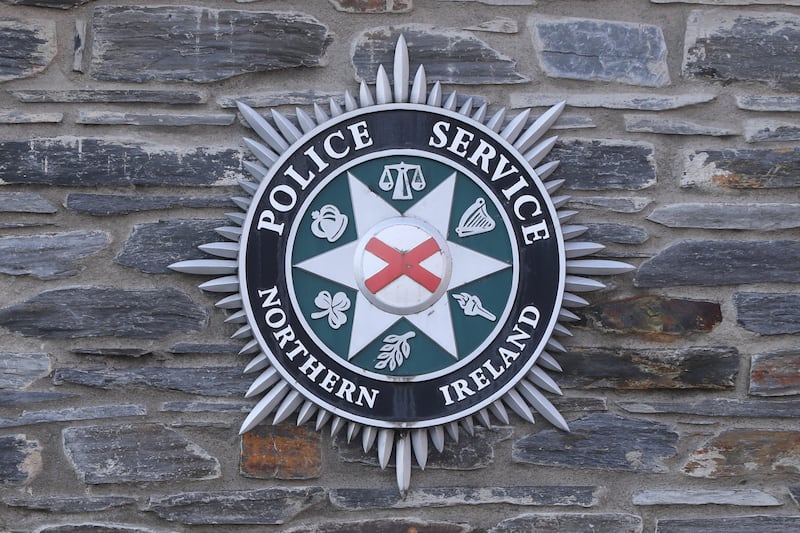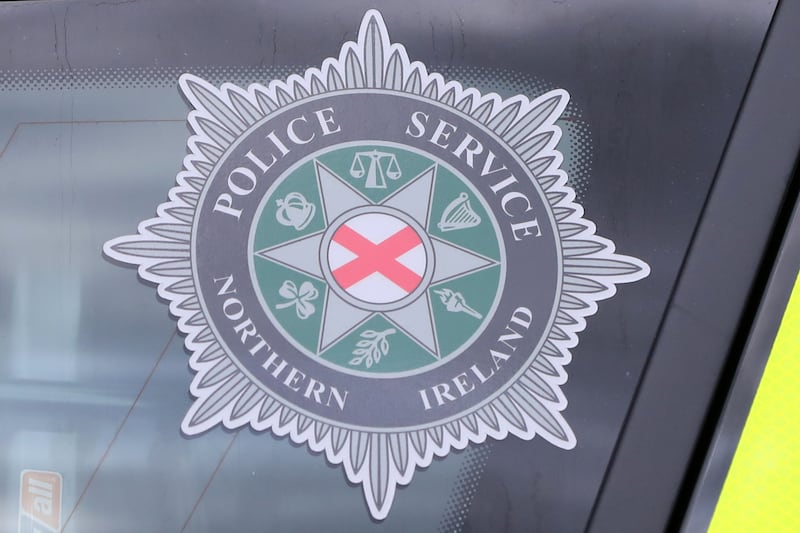A COUNCIL bid to force a Stormont department to remove all unauthorised banners would have a disproportionate adverse impact on unionists, internal legal advice said.
Belfast City Council had sought to take legal action against the Department for Infrastructure (DfI) to remove from its property all paramilitary flags and unapproved banners.
But after considering legal advice, councillors stepped back and are instead planning a city-wide public consultation on banners and flags.
The original Sinn Féin motion had sought for the council to take legal action against DfI forcing them to remove all paramilitary flags and all unauthorised banners erected in the absence of agreed community protocols.
It had followed criticism of banners across the north supporting 'Soldier F', a former paratrooper facing a murder trial over Bloody Sunday in Derry in 1972.
Legal opinion was sought after unionist councillors challenged the motion through the 'call-in' process, which examines whether a decision was properly reached or would adversely affect a section of the community.
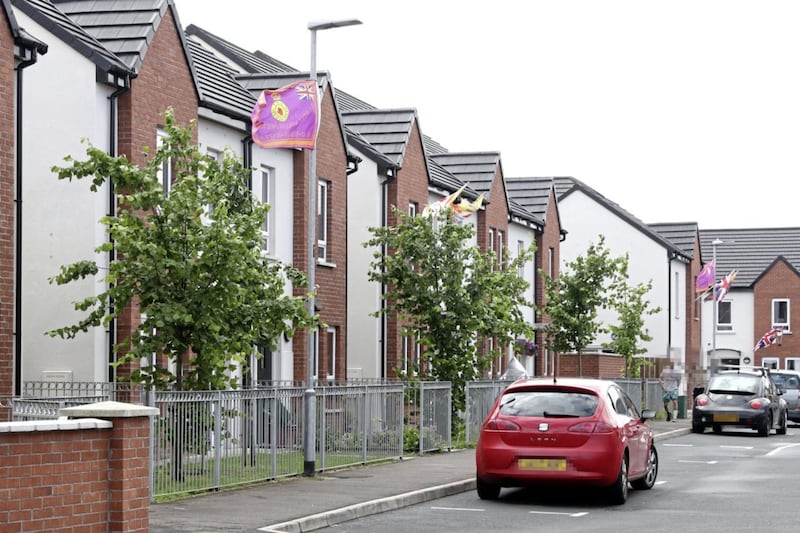
The legal advice found that taking legal action against DfI to remove paramilitary flags would not have an adverse impact.
However, it found that such efforts to remove "all banners" would adversely and disproportionately impact the 'PUL (Protestant Unionist Loyalist) community'.
It said that the scope of the motion was wide enough to include flags, and that erecting public banners and flags in the north is mainly linked to the PUL community.
The advice also concluded that the decision taken in July had not been properly considered as there had been no equality screening.
Last week, a majority of councillors on the city's Strategic Policy and Resources Committee agreed to a city-wide flag consultation "on the presence of flags and banners in the city".
The decision is set to be ratified at the next full council meeting in October, while the format and details of the consultation will the discussed at a later stage.
DUP councillor David Graham said his party has been "consistently opposed to the flying of any paramilitary flags" but dismissed the consultation as "politically contrived".
"There has been clear legal advice to the council that the PUL community would be unfairly impacted due to the cultural and historical traditions within that community," he said.
Alliance councillor Emmet McDonough-Brown welcomed the consultation plan.
"The unregulated and illegal flying of flags from lampposts is without doubt a significant issue for a lot of people living and working in Belfast, judging by the volume of correspondence we receive as elected representatives," he said.
A Stormont body set up in 2016 to address flags issues – the Commission on Flags, Identity, Culture and Tradition (FICT) – has yet to issue any recommendations.
